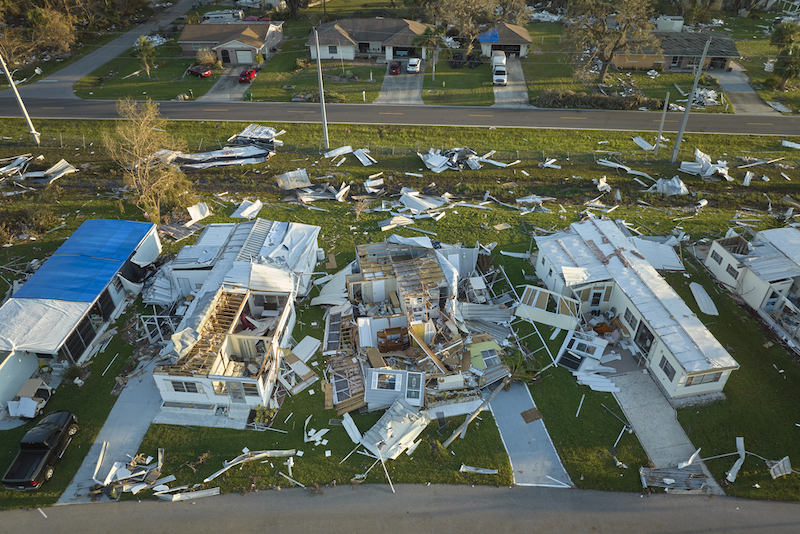The Property Advocates Explains How Hurricane Ian is Affecting Florida Homeowners
November 14, 2022
Content provided by legal writers
When Hurricane Ian made landfall in the southwestern section of Florida as a Category 4 storm on September 28, many people knew that homes along the coast would be significantly affected. Many Floridians living much further inland didn’t realize, though, that they would be affected, too, as The Property Advocates explains.
Hurricane Ian wrecked damage to wide areas of Florida, with storm surges at the coast causing rivers to overflow, which resulted in massive flash flooding over many inland areas of the state.
While the federal government stepped in to provide emergency relief to millions of people affected by the hurricane, many will be facing financial challenges — at the very least — for years to come.
Most Homeowners Didn’t Have Flood Insurance
One of the biggest reasons that so many Florida residents will face financial ruin is that they don’t have flood insurance. Most homeowners carrying this type of insurance are located along coastal areas of the country. Those whose homes are located inland don’t carry the insurance because it’s not required of them and because massive flooding typically doesn’t occur where they live.
Hurricane Ian Directly Affected Many of Those People.
According to a POLITICO E&E News government records analysis, there are 1.8 million households located in the nine counties where President Joe Biden declared a disaster area following the hurricane. Of those households, only 29% had flood insurance through the National Flood Insurance Program, which provides the majority of flood insurance in the country.
Hardee County was hit particularly badly. According to the analysis, only 1.3% of homes there has flood coverage, and it’s one of the lowest-income areas of the state.
How Flood Insurance Works
Coverage against flooding isn’t covered in typical home insurance policies. Those who wish to have it included in their policies have to purchase it separately.
Because of the unlikelihood of catastrophic flooding, most homeowners do not purchase this coverage on their own — either through FEMA’s insurance program or a private insurer — unless they live in a coastal area prone to flooding.
This means that the millions of people whose homes were affected by flooding in Florida could be left to figure out how to repair damage all on their own. There is some federal financial relief available, but it won’t be available to all, and it likely won’t cover the cost of all damage experienced by all homeowners.
How the Claims Will Work
According to The Property Advocates, one of the biggest factors in whether homeowners will receive coverage from their insurance company for storm-related damage is the source of that damage.
For example, if the damage was determined to be caused by wind, that could play to their benefit, especially if they didn’t have flood insurance. Even still, it’s possible that affected homeowners could be forced to pay a higher deductible than normal for this damage.
That’s because many home insurance policies carry a higher deductible for certain types of weather-related activities, and hurricane and/or wind damage often falls into that category in Florida.
One of the biggest lessons Florida homeowners can learn from Hurricane Ian is to understand what’s covered under their home insurance policy and decide whether adding supplemental coverage would be to their benefit.
About The Property Advocates
The Property Advocates, P.A. is a full-service Florida insurance law firm specializing in property insurance claims. With offices in Miami, Orlando, and Tampa, The Property Advocates team consists of nearly 25 experienced attorneys with decades of combined experience who are compassionate, knowledgeable, and not afraid to go to trial for their clients. They have a successful track record of resolving complicated property insurance claims and getting their clients the fair compensation they deserve.
This content is provided by an independent source for informational purposes only and does not contain legal advice. Consult an attorney or financial advisor when making decisions. This information is provided by legal writers and does not reflect the views or opinions of The Daily Sundial editorial staff.










